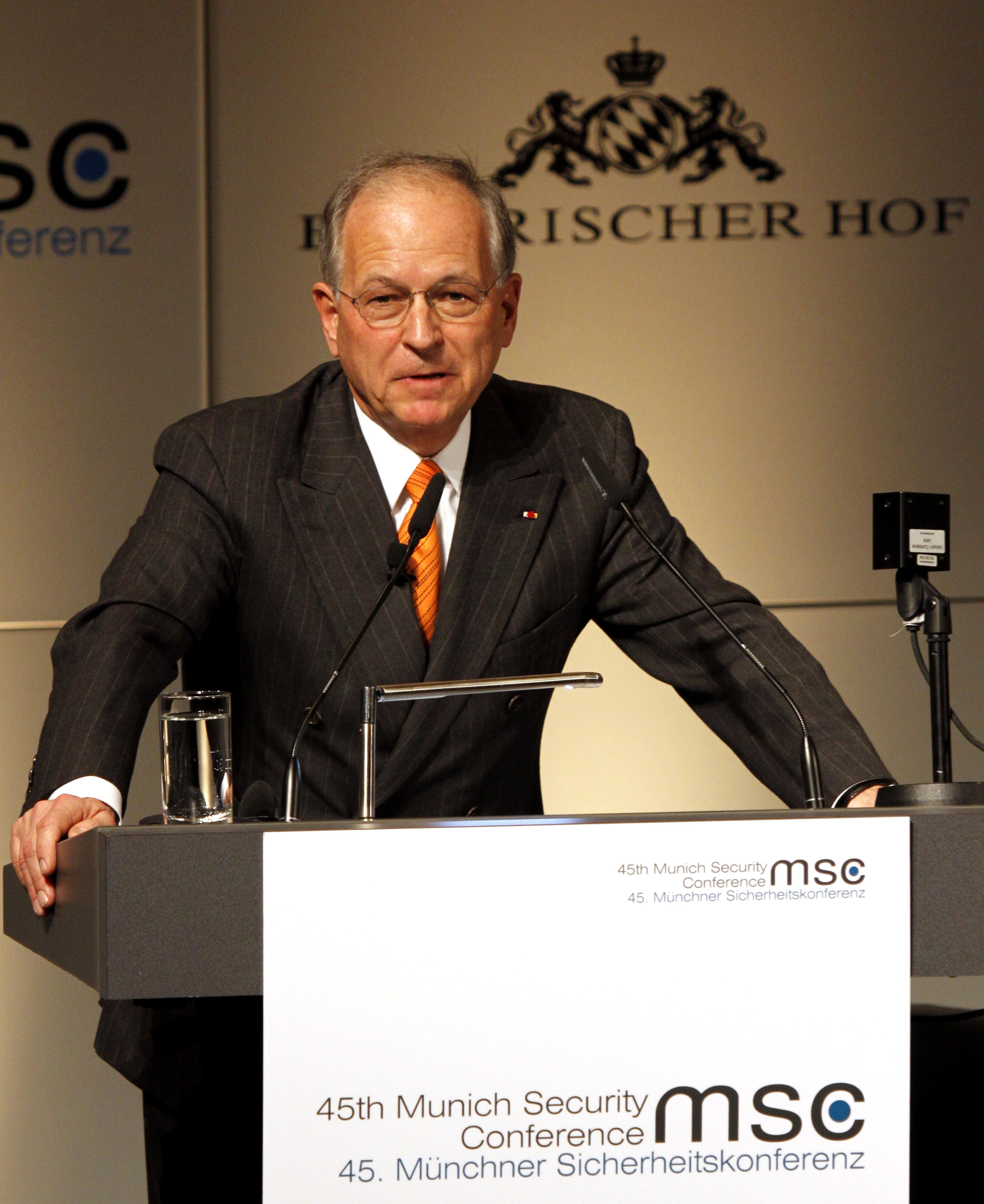|
Young Initiative On Foreign Affairs And International Relations
The Young Initiative on Foreign Affairs and International Relations (commonly abbreviated IFAIR) is a nonpartisan German think tank dedicated to promoting greater engagement of youth in international affairs. IFAIR was founded in 2010, during a summer school of the German National Academic Foundation and as of February 2018, had 190 members globally. Grouping activities in three lines of action ("Think.Lean.Act"), the think tank seeks to stimulate debates on topics of international politics, to support the professional development of its members, and to implement specific projects in the realm of international relations (IR). In the past, IFAIR has been pursuing its activities in collaboration with institutions such as the German Federal Foreign Office, the German Chancellery and the Hertie School of Governance in Berlin. IFAIR's open think tank www.ifair.eu boasts more than 160 publications, including guest contributions from European Commission President José Manuel Barroso and ... [...More Info...] [...Related Items...] OR: [Wikipedia] [Google] [Baidu] |
Think Tank
A think tank, or policy institute, is a research institute that performs research and advocacy concerning topics such as social policy, political strategy, economics, military, technology, and culture. Most think tanks are non-governmental organizations, but some are semi-autonomous agencies within government or are associated with particular political parties, businesses or the military. Think-tank funding often includes a combination of donations from very wealthy people and those not so wealthy, with many also accepting government grants. Think tanks publish articles and studies, and even draft legislation on particular matters of policy or society. This information is then used by governments, businesses, media organizations, social movements or other interest groups. Think tanks range from those associated with highly academic or scholarly activities to those that are overtly ideological and pushing for particular policies, with a wide range among them in terms of th ... [...More Info...] [...Related Items...] OR: [Wikipedia] [Google] [Baidu] |
Munich Security Conference
The Munich Security Conference (MSC; german: Münchner Sicherheitskonferenz) is an annual conference on international security policy that has been held in Munich, Bavaria, Germany since 1963. Former names are ''Wehrkundetagung'' and ''Münchner Konferenz für Sicherheitspolitik''. It is the world's largest gathering of its kind. Over the past four decades the Munich Security Conference has become the most important independent forum for the exchange of views by international security policy decision-makers. Each year it brings together about 350 senior figures from more than 70 countries around the world to engage in an intensive debate on current and future security challenges. The list of attendees includes heads of states, governments and international organizations, ministers, members of parliament, high-ranking representatives of armed forces, science, civil society, as well as business and media. The conference is held annually in February. The venue is the Hotel Baye ... [...More Info...] [...Related Items...] OR: [Wikipedia] [Google] [Baidu] |
Political And Economic Think Tanks Based In Germany
Politics (from , ) is the set of activities that are associated with Decision-making, making decisions in Social group, groups, or other forms of Power (social and political), power relations among individuals, such as the distribution of resources or Social status, status. The branch of social science that studies politics and government is referred to as political science. It may be used positively in the context of a "political solution" which is compromising and nonviolent, or descriptively as "the art or science of government", but also often carries a negative connotation.. The concept has been defined in various ways, and different approaches have fundamentally differing views on whether it should be used extensively or limitedly, empirically or normatively, and on whether conflict or co-operation is more essential to it. A variety of methods are deployed in politics, which include promoting one's own political views among people, negotiation with other political subje ... [...More Info...] [...Related Items...] OR: [Wikipedia] [Google] [Baidu] |
Think Tanks Based In Germany
In their most common sense, the terms thought and thinking refer to conscious cognitive processes that can happen independently of sensory stimulation. Their most paradigmatic forms are judging, reasoning, concept formation, problem solving, and deliberation. But other mental processes, like considering an idea, memory, or imagination, are also often included. These processes can happen internally independent of the sensory organs, unlike perception. But when understood in the widest sense, any mental event may be understood as a form of thinking, including perception and unconscious mental processes. In a slightly different sense, the term ''thought'' refers not to the mental processes themselves but to mental states or systems of ideas brought about by these processes. Various theories of thinking have been proposed, some of which aim to capture the characteristic features of thought. ''Platonists'' hold that thinking consists in discerning and inspecting Platonic forms and ... [...More Info...] [...Related Items...] OR: [Wikipedia] [Google] [Baidu] |



.jpg)